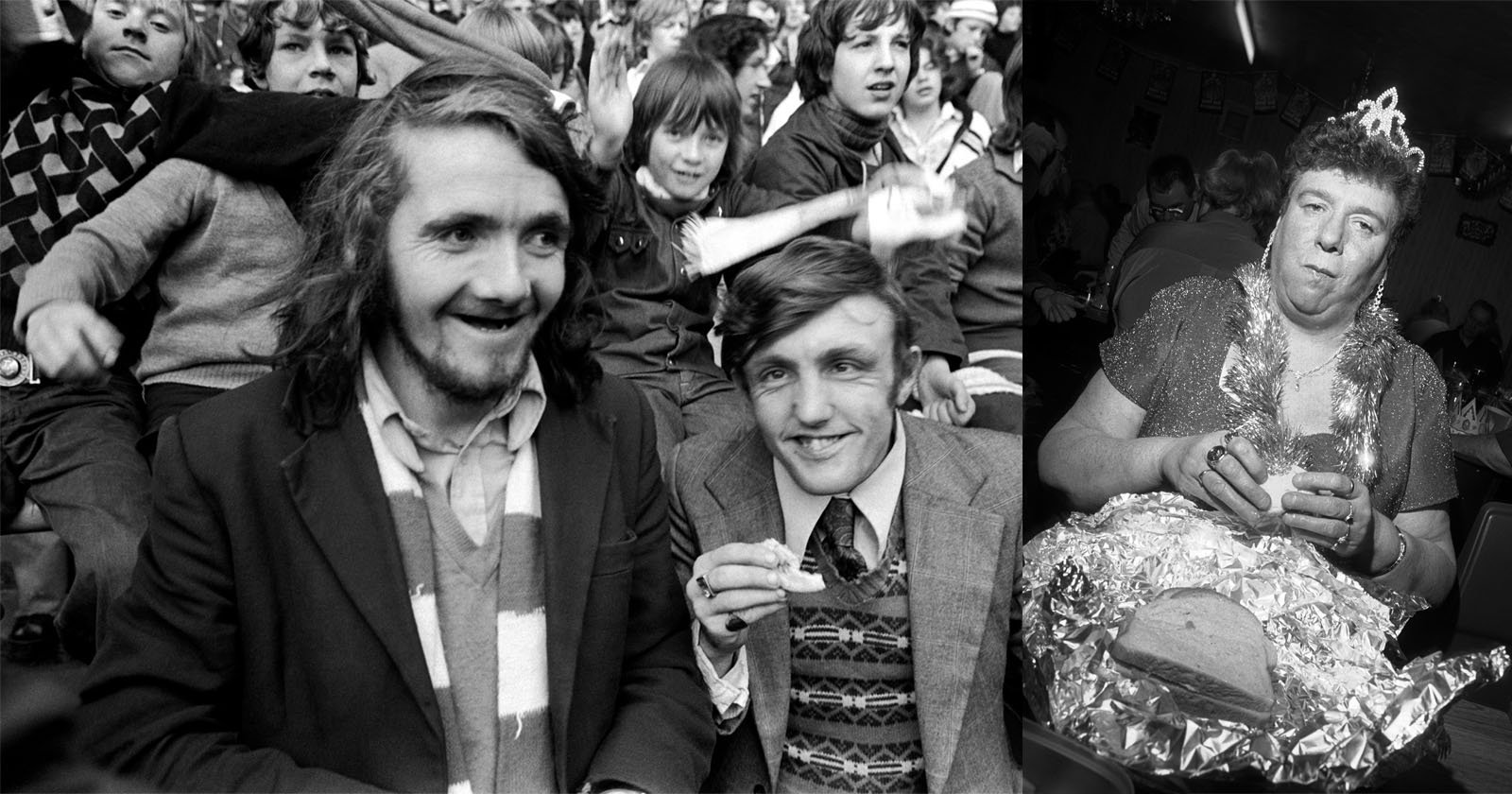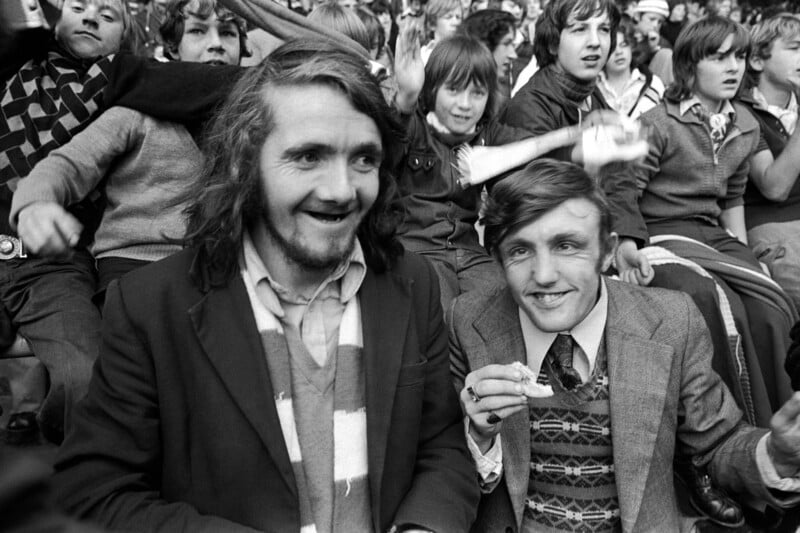 ENGLAND. Liverpool. 1979. Soccer fans. | Bruce Gilden / Magnum Photos
ENGLAND. Liverpool. 1979. Soccer fans. | Bruce Gilden / Magnum Photos
“The older I get, the closer I get,” says street photographer Bruce Gilden. Now in his seventies, Gilden’s latest book examines photographs he made in the U.K. across the 1970s and 2000s — when he was very, very close to his subjects.
So close in fact that twice he found himself being removed from a venue, both times essentially for his own safety. On October 16, 1976, Gilden attended a soccer game on his birthday between Liverpool and Everton.
“The bobbies [police] made me leave the stadium at Anfield when they lined the field near the end of the match because all the little street urchins were trying to pick my pockets,” writes Gilden. “I wanted to stay, but they wouldn’t let me.”
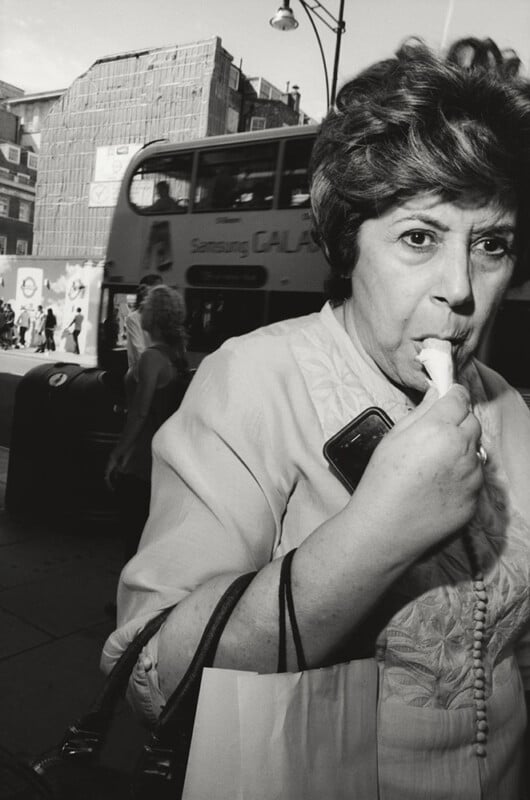 GB. London. 2012. Bethnal Green.
GB. London. 2012. Bethnal Green. 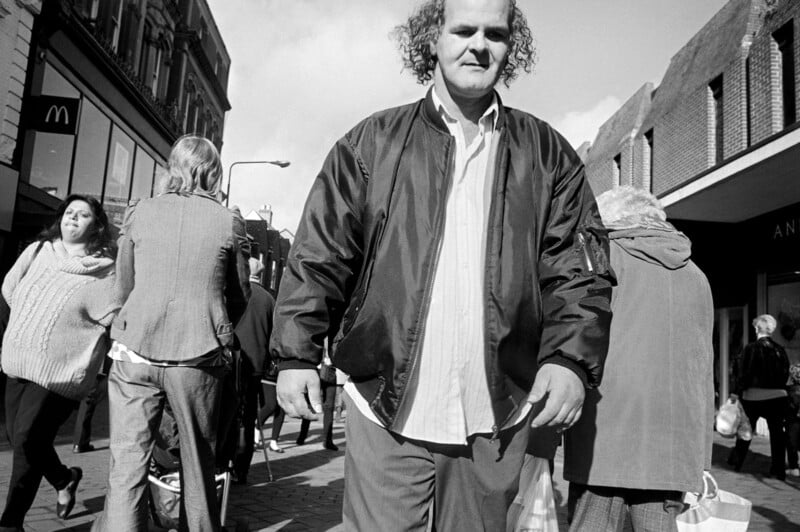 GB. England. Derby. 2010.
GB. England. Derby. 2010. 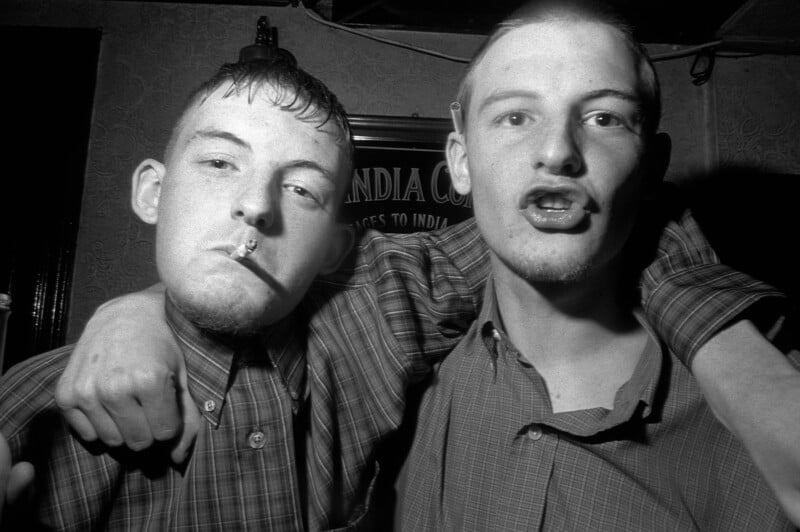 ENGLAND. Newcastle. 2000. Bar.
ENGLAND. Newcastle. 2000. Bar.
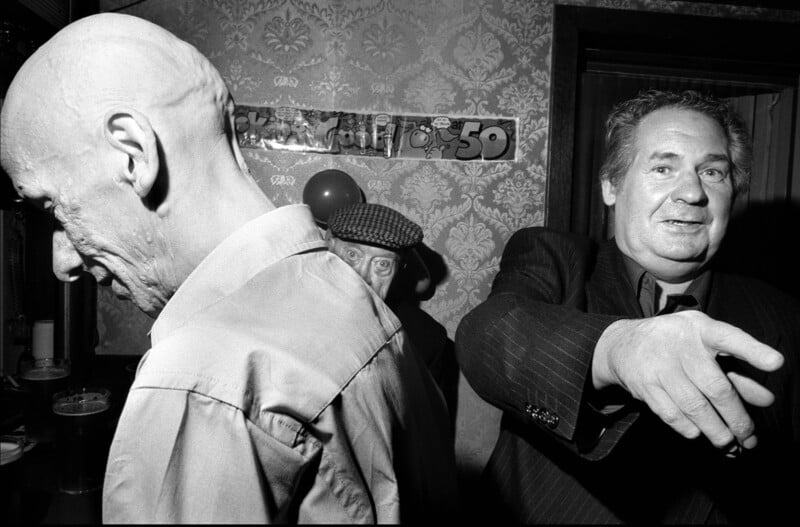 ENGLAND. London. King’s Cross. Summer 2000. Two men in a pub in the King’s Cross area.
ENGLAND. London. King’s Cross. Summer 2000. Two men in a pub in the King’s Cross area.
About 24 years later, Gilden was in a coal mining region of Wales for the turn of the millennium, while on commission for Magnum Photos.
“There was a fight on New Year’s Day at the working men’s club,” Gilden explains. “One of the muscle-bound young adults threw a glass against the wall and all hell broke loose. I got thrown out into the freezing cold night with no jacket on, completely soaked in sweat just for being a spectator with a camera. I was smart enough to not take pictures of this because I’m sure everybody would have attacked me.”
Despite Gilden’s reputation as an in-your-face street photographer, in his new book, The Empire on Which the Sun Never Sets, he does talk of when to take a photo and when not to take a photo — using his street smarts to know when the camera should come out and when it shouldn’t.
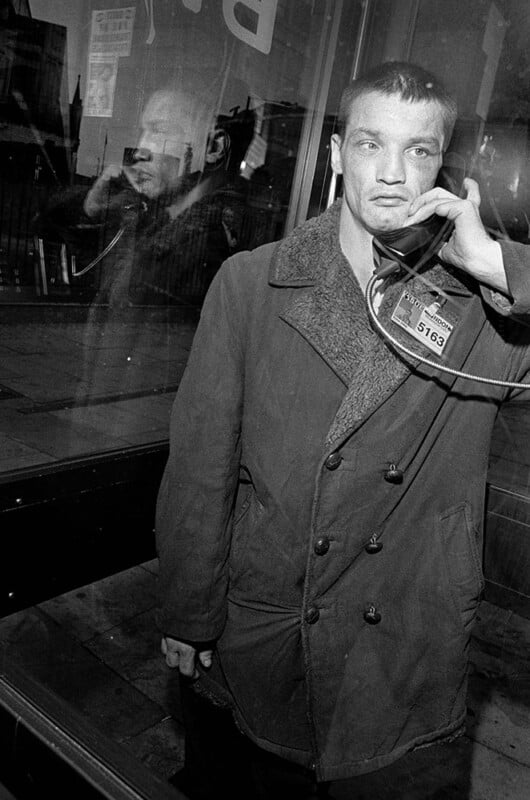 ENGLAND. London. King’s Cross. Summer 2000. A man uses a telephone outside the King’s Cross Underground station.
ENGLAND. London. King’s Cross. Summer 2000. A man uses a telephone outside the King’s Cross Underground station. 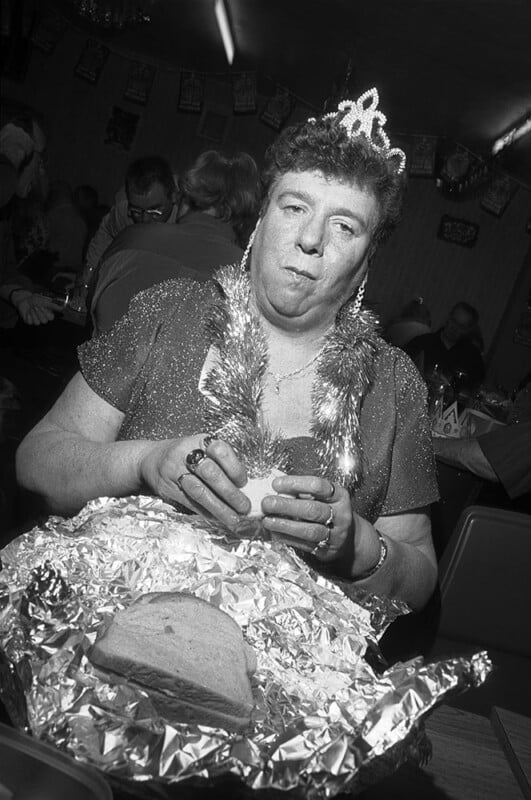 GREAT BRITAIN. Rhondda Valley, Wales. 2000. Woman eating cheese sandwiches.
GREAT BRITAIN. Rhondda Valley, Wales. 2000. Woman eating cheese sandwiches. 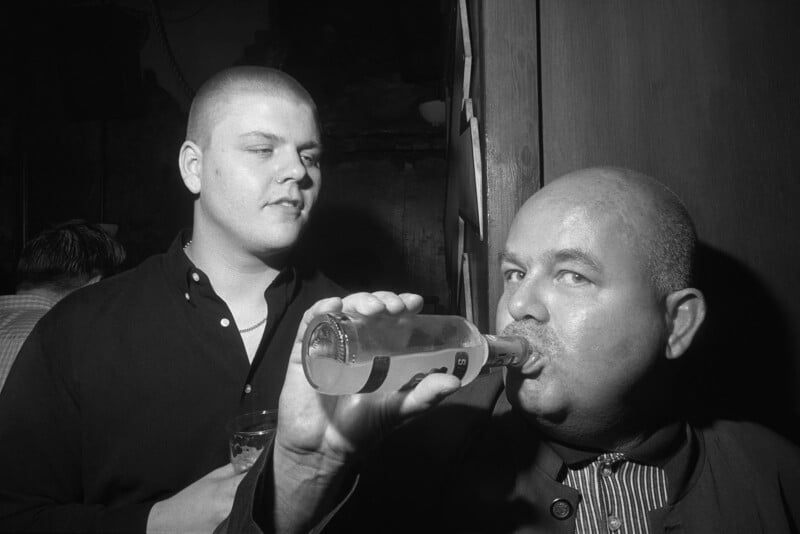 GREAT BRITAIN. Newcastle. 2000. Bar scene.
GREAT BRITAIN. Newcastle. 2000. Bar scene.
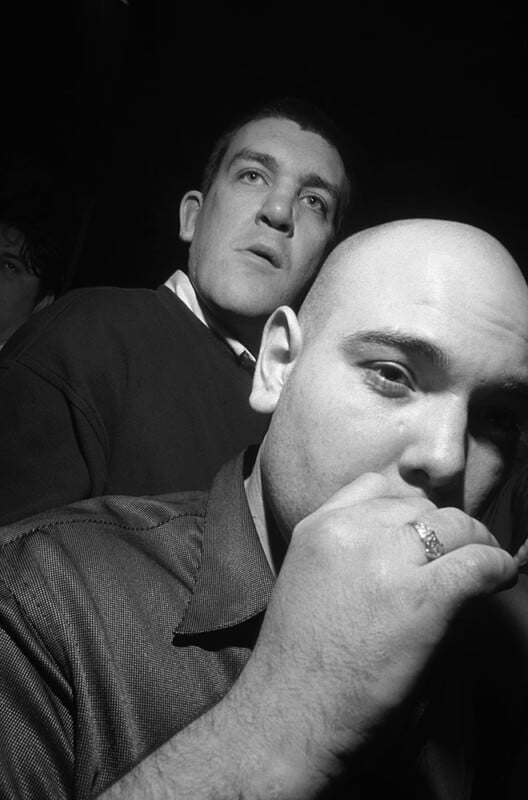 GREAT BRITAIN. Newcastle. 2000. Bar scene.
GREAT BRITAIN. Newcastle. 2000. Bar scene.
As well as Liverpool and Wales, Gilden visits Newcastle in the North East of England, as well as hanging out with drug abusers in the King’s Cross area of London.
“This is not a romantic England. It’s a place where photographing often wasn’t safe, where street smarts were as essential as the camera itself,” reads the press release for Gilden’s new book. “Gilden’s lens turns voyeurism into confrontation, exposing the surreal theatre of public life, moments both violent and tender, absurd and unsettling.”
The Empire on Which the Sun Never Sets is published by Setanta Books and available now for £50 ($66).
